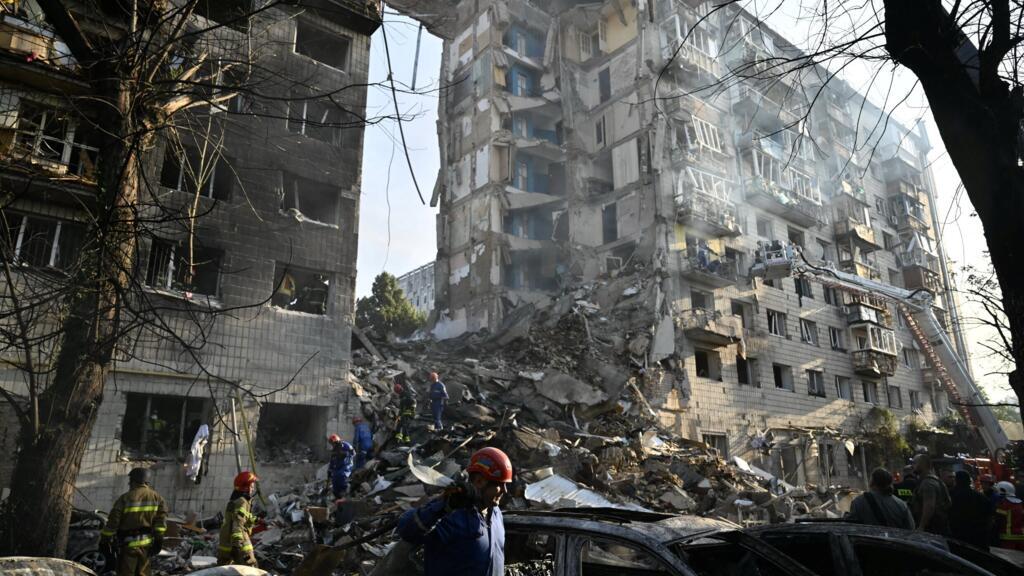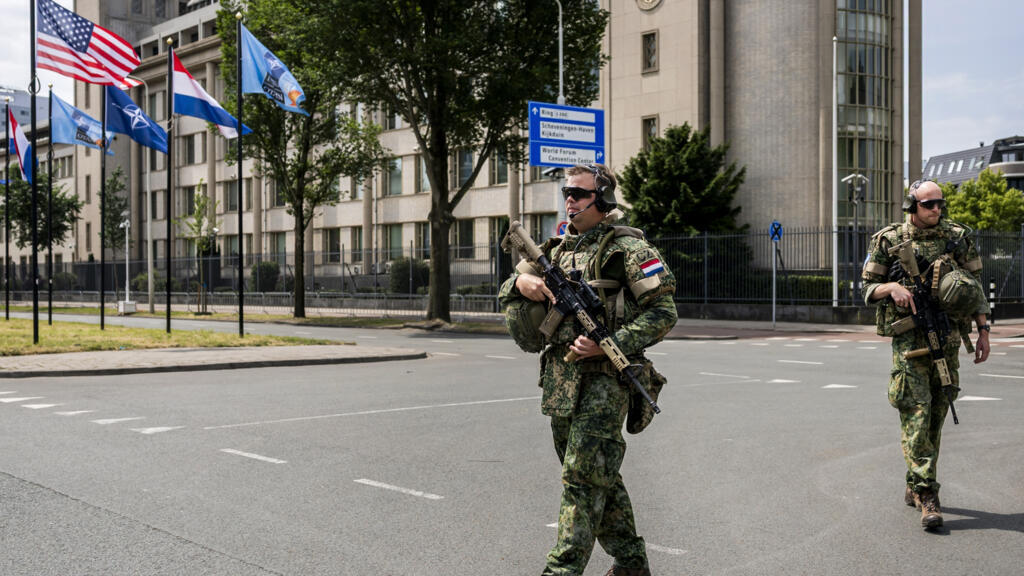New Drone Attacks Target Kyiv Amid Stalled Diplomatic Efforts
On Monday, a significant escalation in the ongoing conflict between Ukraine and Russia was marked by a "massive" drone attack on Kyiv, which resulted in the tragic death of at least five individuals and left approximately 20 others injured. This incident underscores the deteriorating situation in the region, especially as diplomatic channels aimed at resolving the conflict remain inactive.
The drone attack comes at a time when Ukraine has publicly stated its intention to amplify the "scale and depth" of its military operations. The focus of these intensified efforts is directed at Russian energy and military infrastructure, which Ukraine contends is essential for undermining Russia's capabilities in the ongoing war. This strategic shift highlights Ukraine’s resolve to take a more aggressive stance as it seeks to protect its sovereignty and curtail Russian advances.
As the attack unfolded, it was reported that several areas in Kyiv were targeted, causing widespread panic and chaos among the residents. Eyewitness accounts indicate that the sound of drones buzzing filled the air, followed by the ominous blasts of explosions. Emergency services promptly responded to the scene, working tirelessly to assist the victims and manage the destruction caused by the drone strikes.
The drone assault is indicative of a broader trend in the conflict, wherein both nations have increasingly utilized drone technology. This shift towards unmanned aerial vehicles in warfare has transformed traditional combat dynamics, allowing for greater reach and effectiveness while minimizing the risk to personnel on the ground. However, the human cost remains painfully high, as evidenced by the casualties from Monday's attack.
In the wake of this incident, there has been a heightened sense of urgency within the Ukrainian government to bolster its defenses and enhance its military strategies. President Volodymyr Zelensky has expressed gratitude for international support, while also calling for more advanced weaponry and defense systems from allies, asserting that such assistance is pivotal for Ukraine's survival and success on the battlefield.
International reactions to the drone strikes have varied, with many countries reiterating their condemnation of Russia's aggressive tactics. The attack has prompted renewed discussions about the need for a unified response to global security threats and the implications of sustained hostilities in Ukraine. As the conflict stretches on, concerns mount over potential regional destabilization, further complicating the geopolitical landscape.
As Ukraine continues to adapt its military strategies, it remains to be seen how the situation will evolve in the coming weeks. The ongoing drone assaults highlight the pressing need for a comprehensive dialogue aimed at reducing hostilities, although with current diplomatic efforts stalled, both sides seem poised for further escalation. The conflict's human toll serves as a constant reminder of the devastating impact of war on ordinary civilians caught in the crossfire.
In summary, the recent drone attack on Kyiv not only punctuates the urgent need for renewed diplomatic efforts but also reflects a concerning trend towards escalating violence. As Ukraine seeks to defend itself and reclaim control over its territory, the international community watches closely, hopeful for a resolution but aware of the fractures that continue to persist in the region.












